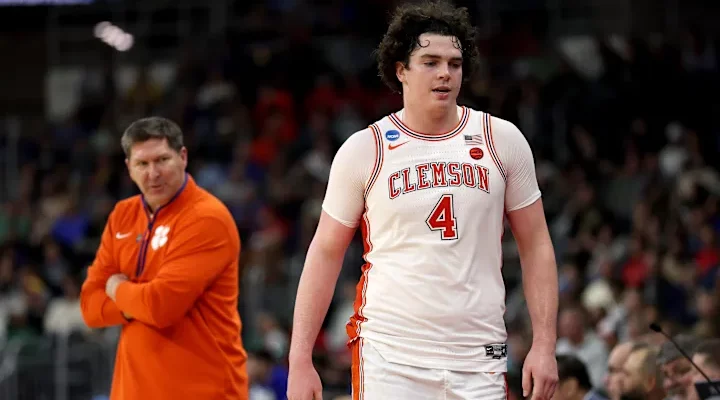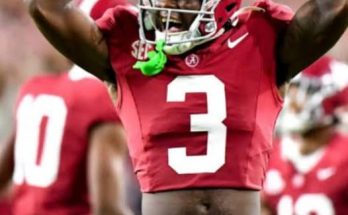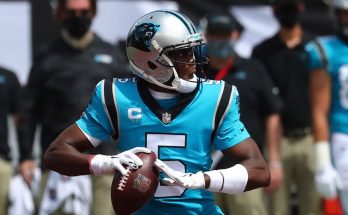Clemson football’s Ian Schieffelin might be listed as a tight end on the roster, but in his mind, his current journey feels less like a seasoned football player taking the field and more like a freshman stepping onto a basketball court for the very first time. That’s not just a cute comparison for interviews — it’s an honest reflection of where he’s at in his athletic transition, his mindset, and his day-to-day experiences adjusting to the speed, complexity, and physical demands of a new role. Schieffelin, who carved out his name as a standout basketball player before pursuing football full-time, knows what it’s like to feel like the youngest guy in the room, learning the ropes from veterans, making mistakes in real time, and trying to piece together the countless little details that separate an average player from one who truly thrives. That, in many ways, is the core of his current football life.
For him, the freshman-on-the-court analogy stems from a deep humility about the work ahead. Schieffelin recognizes that no matter how big, strong, or athletic he may be, tight end is a position that demands more than raw physical gifts. It requires precision in route running, crisp execution in blocking schemes, a keen awareness of defensive formations, and a near-instinctive feel for timing in high-pressure moments. In basketball, the equivalent is knowing the playbook, reading defensive rotations, and learning to make smart passes under duress. On the football field, that translates into recognizing blitz packages, adjusting routes on the fly, and sealing off an edge rusher with the right hand placement at just the right moment. These are things a player only develops through experience, repetition, and plenty of trial and error.
Schieffelin admits that there’s a learning curve that can be humbling, but that humility isn’t a sign of weakness — it’s a sign of how seriously he takes this opportunity. In basketball, his early freshman days were filled with moments where he felt a half-step behind, reacting instead of dictating. The speed of the game was almost overwhelming at times, and that’s exactly how he feels in certain football practices now. One moment he’s lining up across from a defensive end who’s been in the system for years, and the next he’s adjusting to a linebacker’s unexpected blitz from the weak side. The ball is snapped, and everything seems to happen faster than his mind can process — a familiar sensation to anyone who has ever stepped up in competition and had to adapt.
The crossover between his basketball and football experiences doesn’t stop at the feeling of being a newcomer. The tight end role itself is something of a hybrid position, much like playing a forward in basketball who has to rebound, score, and defend all at once. Tight ends are asked to block defensive linemen one play, run a precise pass route the next, and sometimes even serve as a decoy to manipulate coverage. In basketball, Schieffelin was used to switching defensive assignments, making quick reads, and working within a complex motion offense where timing and spacing were everything. Now, those same instincts — timing a cut, anticipating a defender’s movement, creating separation — are serving him in new ways.
Still, he knows that instincts alone won’t carry him. What separates a freshman from a veteran is mastery, and mastery in football is forged through countless hours of practice, film study, and honest feedback from coaches. Schieffelin has embraced that grind with a level of dedication that impresses teammates and staff alike. He studies film not only of his own reps but also of NFL tight ends who excel at the craft. He watches their footwork, how they use their hands, how they disguise routes until the last possible second. These small details are the equivalent of perfecting a jump shot release or learning how to defend a pick-and-roll in basketball — not flashy, but essential.
Part of what makes Schieffelin’s transition so compelling is that he’s doing it at Clemson, a program with high expectations and elite talent at every position. There’s no such thing as easing into a role here; the moment you put on the helmet, the competition is real. And while some might shy away from that pressure, Schieffelin thrives in it. He compares it to playing in a packed basketball arena on the road, where every possession feels critical. In football, every snap is a test, and he’s learning to handle that pressure with the same poise he developed on the hardwood.
His teammates have noticed his adaptability. Veterans have pulled him aside during practices to offer pointers, much like older players once did when he was a freshman on the basketball court. The mentorship dynamic is something he values deeply. In basketball, an experienced teammate might point out how to angle his body to box out a taller opponent; in football, a veteran tight end might show him how to position his feet for better leverage against a defensive end. These moments of one-on-one instruction add up over time, building the foundation for confidence and competence.
Confidence is, perhaps, the biggest bridge between feeling like a freshman and becoming a seasoned player. Schieffelin knows that there will come a day when the game slows down for him — when he sees a defense line up and instantly knows how to attack it, when his body executes without hesitation, when his instincts align perfectly with his responsibilities. That’s the point every athlete strives for, whether they’re dribbling a ball or running a post route. Until then, he’s willing to live in the discomfort of learning, to make mistakes in pursuit of growth, and to keep showing up with the same energy and determination that got him here.
Off the field, Schieffelin’s dual-sport background has given him a unique approach to conditioning and preparation. Basketball’s emphasis on lateral quickness, agility, and endurance translates well to football’s demands, especially for a tight end who must be explosive off the line and nimble in traffic. However, the physical contact in football is far more intense, and that’s an area where he continues to adjust. Taking hits from linebackers, absorbing contact while catching passes over the middle, and holding blocks against defensive ends require a different kind of toughness — one that he’s actively building with every rep in practice.
The mental side of the game, too, is something he’s learning to master. Basketball is a flow sport, where possessions blur together and the game has a rhythm. Football, on the other hand, is a series of high-intensity bursts with deliberate pauses in between. That difference affects how an athlete processes information, maintains focus, and regulates energy. Schieffelin is learning to reset mentally after each play, using the downtime to recall coaching points, assess defensive looks, and prepare for the next snap. It’s a different type of mental endurance, one that he’s embracing fully.
Clemson’s coaching staff has been vocal about their excitement for his potential, praising his willingness to work, his coachability, and his physical tools. They see a player who, while new to the position, has the athleticism and mindset to develop into a key contributor. Schieffelin, for his part, isn’t rushing the process. He understands that mastery takes time, that being “the freshman” in his own mind is not a setback but a stage of growth. He’s confident that if he keeps stacking good days, the breakthrough will come.
In many ways, his perspective is refreshing in an era where athletes are often expected to dominate immediately or risk being labeled a bust. Schieffelin is comfortable acknowledging that he’s not there yet — and that honesty might be his greatest asset. It allows him to focus on the work instead of the hype, to measure progress in small wins rather than grand declarations. That’s how he approached his freshman basketball season, and that’s how he’s approaching his early days as a tight end.
What makes his journey resonate is the universal nature of what he’s describing. Anyone who has ever started something new — whether it’s a sport, a job, or any skill — knows that feeling of being the least experienced person in the room, of scrambling to catch up while trying to prove you belong. Schieffelin’s willingness to embrace that stage, to view it as part of the path rather than an obstacle, is what will likely propel him forward.
If the past is any indication, he won’t feel like a freshman forever. Just as he once grew into a confident, capable basketball player who could hold his own against anyone on the court, he’s on the same trajectory in football. The learning curve may be steep, but the climb is familiar — and Schieffelin has already proven he knows how to reach the top.
Soon enough, he’ll no longer compare himself to that freshman on the basketball court. Instead, he’ll be the veteran helping the next newcomer adjust, passing down the same wisdom that’s being given to him now. Until then, he’s embracing the grind, leaning into the challenge, and making the most of every rep, every film session, and every chance to learn. And when the game finally slows down, Clemson fans may just see a tight end who not only made the leap from the hardwood to the gridiron but did so with the patience, humility, and resilience of someone who truly understands what it takes to grow into greatness.



